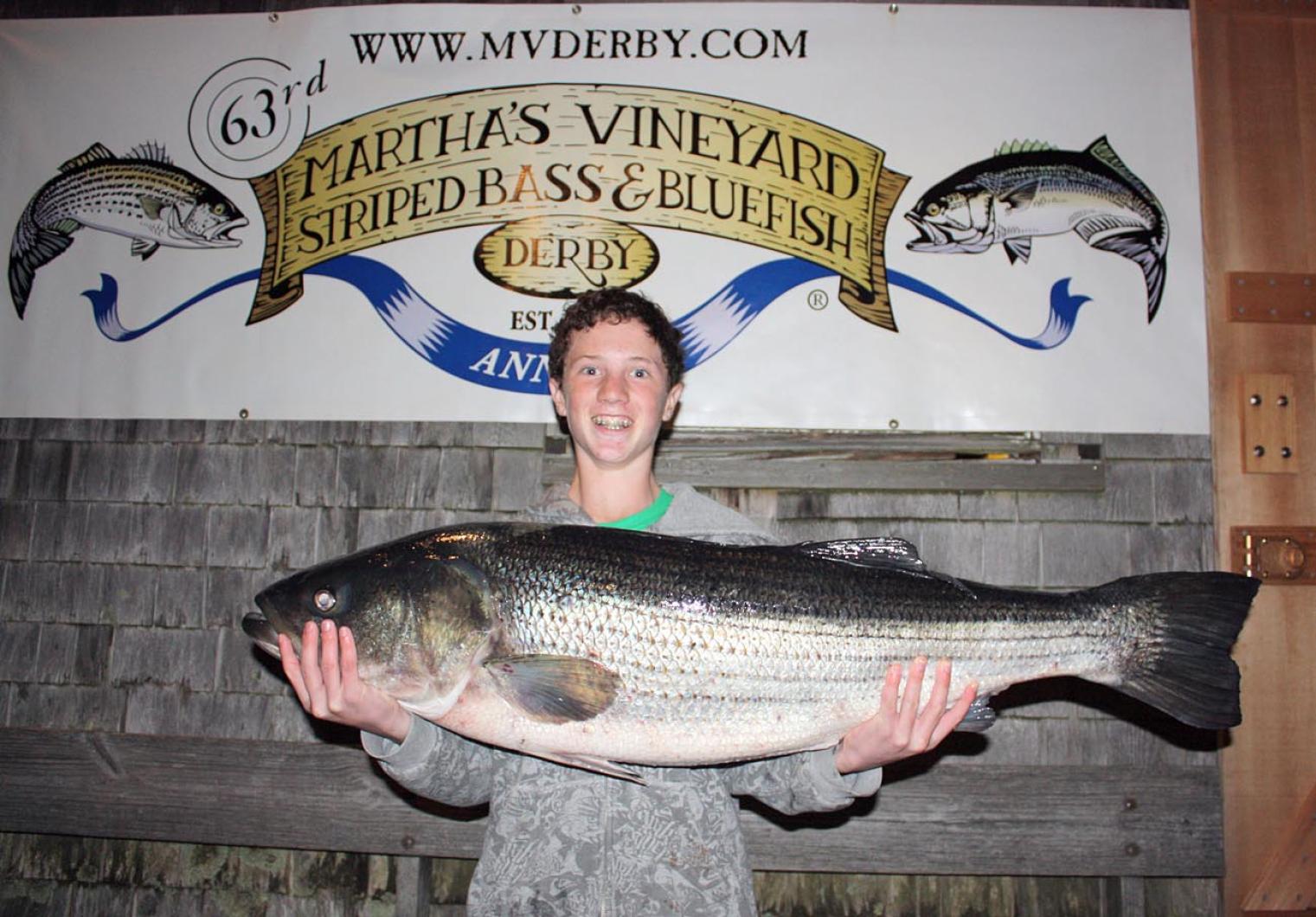Fewer fishermen and fewer fish — that has been the main theme for the 63rd annual Martha’s Vineyard Striped Bass and Bluefish Derby this year. The fall premiere saltwater fishing contest has been affected this year both by the economy and the state of fish stocks. Participation is down.
The tournament that began in mid-September ends tomorrow night at 10 p.m. with the last weigh-in. As of Wednesday morning there were 2,674 fishermen registered in the contest, significantly down from last year’s 3,042 participants.
Ed Jerome, president of the derby, said on Wednesday he attributes the decline to the economy. Until this year, the number of fishermen joining the derby has seen steady growth. While there may still be late arrivals registering this weekend, this may mark the first time in memory when derby participation has dropped precipitously.
And the number of striped bass caught also saw a sharp drop.
As of Wednesday morning 1,300 bluefish had been weighed in, compared with 370 striped bass. Landings are also down for the two other derby species — false albacore and Atlantic bonito. A total of 20,404 pounds of fish have crossed the derby weigh master’s scale.
Mr. Jerome said fishermen are still waiting for the fall striped bass migration to kick in. Many of the striped bass north of the Vineyard have yet to head south, he said, due to warm water temperatures. Mr. Jerome speculated that there may be bigger fish caught after the derby is over.
But Cooper A. Gilkes 3rd, a longtime derby committee member and owner of Coop’s tackle shop in Edgartown, has his own concerns. Mr. Gilkes worries that the striped bass population is not as healthy as fisheries managers believe.
“It is pretty scary,” he said.
The derby has been a smoother contest than last year, when there was heated controversy after two fish were caught that had ingested lead weights prior. The incident drew attention to a largely frowned-upon fishing technique called yo-yoing, where bait are loaded with lead weights. “We’ve seen no lead in fish this year,” Mr. Jerome said.
At press time, nearly all the grand leaders in striped bass, bluefish, bonito and false albacore were beatable. The winning fish could still be out in the water.
More than $250,000 in prize money will be awarded this year. On Sunday, fishermen will convene at Outerland near the airport at 1 p.m. for the awards ceremony. The ceremony will go on for hours as fishermen of all ages step up on stage to receive their first, second, third and fourth place prizes. There are prizes for the top women fishermen, the top seniors and top junior fishermen in all species. Flyfishermen have their own prizes and prize structure.
But most of the attention will be directed to the eight top grand leaders. These are the fishermen who have landed the biggest fish in the four species categories. A drawing will be held among the four top shore fishermen for ownership of a brand new 20-foot Easton Center console powerboat with outboard and trailer. A separate drawing will be held among the four top boat fishermen for ownership of a 2008 Chevrolet four-wheel-drive pickup truck.
So far the leaders in this year’s contest are familiar. Lev C. Wlodyka, who has been a grand prize winner in the past, is up for the largest striped bass caught from a boat, a 46.82-pound striper. He is also eligible for some other top prizes. William A. Pate, another past derby winner, caught the largest false albacore from a boat. His fish weighed 11.44 pounds.
Alphonsus D. Simmons is the one angler with the least worries about being beaten in the last hours of the contest by someone weighing in a bigger fish. His grand leader is a big 16.12-pound bluefish, about a pound and a half heavier than last year’s winner. The derby record for largest bluefish is 23 pounds. The record for the heaviest striped bass is 60 pounds.
Mr. Jerome said Sunday’s awards ceremony will mark an end at Outerland. The nightclub is for sale and is expected to close permanently at the end of the month.
And the troubled economy has had an impact on the derby in another way. Mr. Jerome said fish fillets donated to the derby’s senior citizen program are down. Usually unwanted fish donated by fishermen are filleted at the weigh station shack, refrigerated and later distributed to the local councils on aging, which in turn give the fish fillets to seniors at no cost. In the past the derby has received up to 5,000 pounds of fillets during the monthlong contest. While Mr. Jerome does not have final numbers yet, he said donations are way off. “The fishermen have decided to take their fish home,” he said.








Comments
Comment policy »